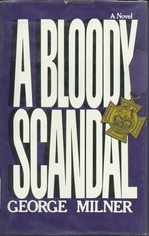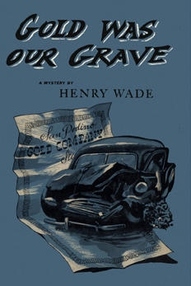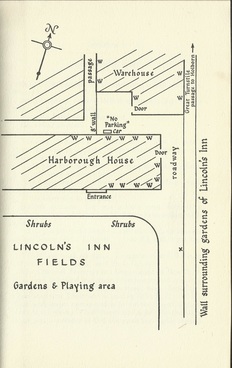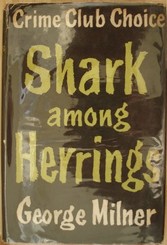
Thus begins Farquarson’s quest, and to that end this slim book (at less than 200 pages) is expertly paced. There is nothing better than an active protagonist boldly reaching for his goal, and while the character is bluntly charming, he is also reckless in his parries, relying more on luck and bravado than any reasonable premeditated murderer might. And believably, Farquarson’s luck holds. He hires an ex-SAS mercenary named Silver – ironically, through Colin, who will become an early victim – to help him with his scheme, and manages to get away with much of it despite strategies that are more often full-blown assaults: arson, car bombs and poison-tipped umbrella points are not exactly subtle, nor do they present the appearance of anything other than murder to the police.
The police, it is amusing to note, take the form of Vraismouth and Toothboy, two detectives from different districts who confer on the sequence that has given them each a victim or two. While discussing events over drinks – always over drinks – Toothboy believes Farquarson is behind the killings, but Vraismouth is skeptical and uninterested in acquiring more work. Besides, argues Vraismouth, would the man be so brazen to leave Mars bar wrappers scattered about the crime scene and risk being seen in a ludicrous fake disguise? Better to leave it alone.
A Bloody Scandal may be most intriguing to me for its cynicism about society’s positive qualities: notably, Milner argues that society doesn’t really have any. No character in this book is in love with another, and sexual couplings are always undertaken for a particular gain. Farquarson’s plan is cold and remorseless, but so are the personalities of most of his victims. This would make for a dispiriting read except for Milner’s constant winking that this world has its priorities profoundly off-balance: bloody murder sells papers and encourages gossip, but the scandal of the title refers to an ungentlemanly gambit Farquarson makes while playing bridge at a club, much to the anger of his opponent at the table.
Interestingly, Kirkus Reviews found the book “uninspiring” and a “mini-entertainment at best.” The reviewer states that the anecdotes – which I believe illustrate Farquarson’s naughty-child defiance of the prudish societal rules that he can’t stand – are merely “diversions and digressions.” (He or she also calls Milner a “first-novelist,” which he decidedly is not.) While not for all tastes, A Bloody Scandal is a happily venomous little story, and its author has managed to use that contradictory tone and his anarchist protagonist to say something quite valid about the hypocrisy of British society.



 RSS Feed
RSS Feed